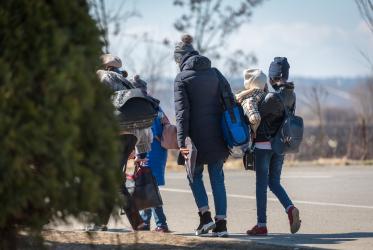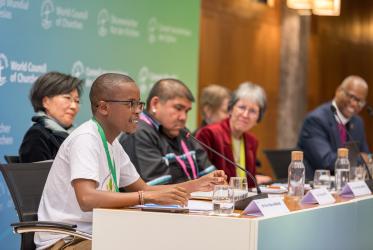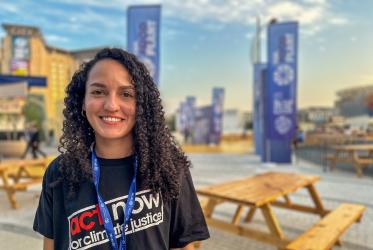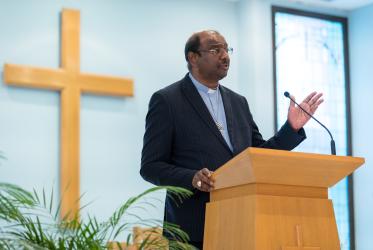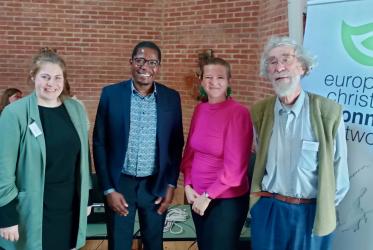Displaying 1 - 20 of 181
Consultation on strategic sngagement of the faith sector with migrants, refugees and other displaced populations for increased access to health and HIV services
12 - 14 March 2024
Ecumenical Center, Geneva, Switzerland
WCC general secretary: “At COP 28 we have to speak up for justice”
03 December 2023

